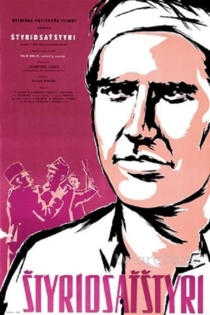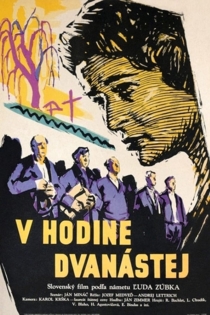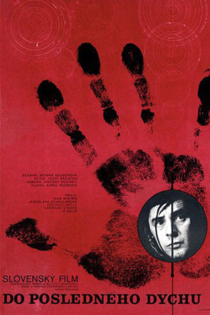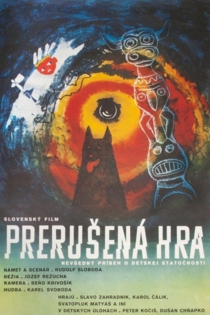
Jozef Režucha
1929 - 1995Štyridsaťštyri
Paľo Bielik
Juraj Sarvaš, Dušan Blaškovič
Drama about the rebellion of the Trencín Infantry Regiment against its superior officers in the Serbian city of Kragujevac, at the end of the First World War. It was the biggest and deadliest rebellion in the Austro-Hungarian army.
Štyridsaťštyri

V hodine dvanástej
Jozef Medveď, Andrej Lettrich
Rudolf Bachlet, Naďa Hejná
Действие происходит во время национального восстания 1944 года. В словацком селе погибли два немецких солдата. Командир немецкой части (Ладислав Худик) объявил, что за каждого убитого солдата будут расстреляны пять заложников. И не меняет своего решения, когда становится известно, что солдаты погибли из-за несчастного случая. Но крестьяне не ждут покорно своей судьбы - они берутся за оружие...
V hodine dvanástej

Drevená dedina
Andrej Lettrich
Samuel Adamčík, Andrej Bagar
Slovak movie is based on the novel by the prominent representative of Slovak prose František Hečka, who was in 1952 awarded the State Prize. The novel and the movie successfully capture the development of Slovak village after the liberation in 1945. The narrative is centred around the characters of the old Púplava, who after the liberation begins to organise a new village life, and his struggle for the construction of settlements Mrzáčky, burnt by the fascists. It is centred around the conflict, greatly reflecting the situation of the countryside at this time: the conflict between the rural poor and the rural rich. In the movie, a rich personal and emotional life of other heroes pulsate besides the main storyline. The movie ends with the final defeat of the reactionary forces by Communists in February 1948, taking over all power in the state of workers and peasants. - "The Wooden Village" is released in celebration of the 7th anniversary of the Communist February Victory.
The Wooden Village


